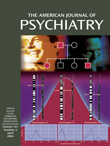Consultation-liaison psychiatry has been with us since Barrett
(1) first proposed the term “liaison” in 1922 to describe what a psychiatrist consultant does in relationship to medicine and social problems. In the eight decades that have followed, consultation-liaison psychiatry has been surrounded by a bubble of controversy over the suitability of its name and squabbles over whether what any individual consulting psychiatrist does is more consultation or more liaison. The American Board of Psychiatry and Neurology has finally acknowledged the maturity and relevance of consultation-liaison psychiatry as a definable specialty and designated it “psychosomatic medicine.”
Almost simultaneously there appears this fine little book, Consultation-Liaison Psychiatry, a practical guide that should leave no doubt in the practitioner’s mind as to the scope of the field in all its operational functions, whatever it may be called.
Authored by two seasoned, expert academic clinicians, the book clearly draws on experience “from the trenches,” offering a unique equivalent of the helpful “for dummies” series in its detailed accounts of the encounters made, the challenges met, the words spoken, and the formulations and interventions applied.
There is no jargon here. Written as if talking directly to a psychiatric resident, each chapter is bracketed by “essential concepts” and “liaison potential,” blending the knowledge of physical medicine with the psychological and social corollaries of virtually every physiological system—cardiology, oncology, nephrology, endocrinology, gynecology, gastroenterology, and neurology.
Acknowledging the shift in focus from predominantly psychodynamic to pharmacological and cognitive behavior techniques, the authors nonetheless adorn their fabric with pearls that have proven hardy survivors from psychoanalytic, psychosomatic, and psychodynamic experience and research.
Special tribute is paid to the management of pain, competency, substance abuse, organ transplantation, psychotherapy in the medical setting, and the psychological needs of the terminally ill. Sections addressing the care of patients with burns and trauma or AIDS/HIV benefit from the expertise of first author Michael Blumenfield. The reader seeking a rich bibliography will not find it here; nonetheless, the modernity of this slim text is attested to by its inclusion of selected Internet sites related to each individual chapter.
In a text as slender as this, some topics must necessarily be given short shrift; such domains as ethics, forensic issues, emergency psychiatry, and child consultation would be expected in a fatter volume. And the special considerations of aging (beyond dementia, delirium, Parkinson’s disease, and stroke) would be welcomed by the consultation-liaison psychiatrist who is increasingly confronted with older patients in the routine of daily work. Although the approach to the patient is nicely discussed, a few separate paragraphs on the patient-doctor relationship, placebo response, and hospital adjustment would help to place in context the excellent clinical material of each chapter. In addition, the copyeditor and compositor might have exercised their skills a bit more proficiently. However, these are mere quibbles in an otherwise easy-to-read, well-organized, lively book that will enhance the work of every psychiatrist (and every medical student and physician, if they would read it).
This concise, pocket-sized volume belongs in the jacket of every psychiatrist trainee and practitioner (provided there is room there to accompany all the other concise guidebooks that have become essential in this time-rationed, compressed, condensed, and specialized world we live in). It is perhaps a sadness of our times that everything must take place quickly and must come in small doses. On the other hand, it is fortunate to find authors who are capable of conveying important data in condensed form. This book “tells it like it is,” serving almost as a pocket supervisor for the consultation-liaison initiate.
Finally, I will take this opportunity to ride a hobbyhorse of my own
(2) in urging that consultation-liaison psychiatry be abbreviated C-L and not C/L, because a dash more typically signifies an integrated close relationship while a slash (virgule) suggests a separating either/or choice. The authors of this book clearly see consultation and liaison practiced in unison.

